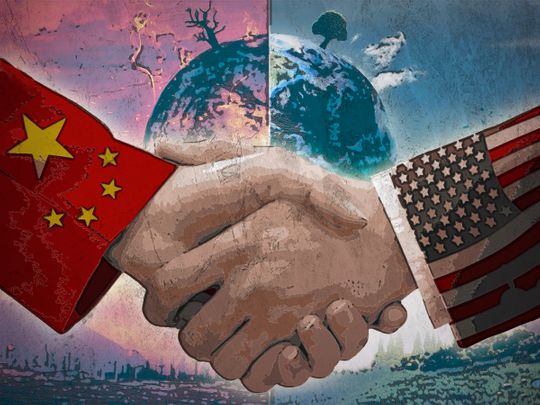In a surprising turn of events, the US and China, despite strained relations in various spheres, reached a climate deal this month. The deal, a beacon of hope amid global climate change concerns, emerged after extensive discussions between US climate envoy John Kerry and Chinese counterpart Xie Zhenhua. The unexpected agreement is particularly significant, given the ongoing geopolitical tensions between the two nations.
Amidst a backdrop of trade disputes and strategic rivalries, the climate envoys managed to put aside their differences and collaborate on critical issues that hold global implications. The deal includes the revival of a bilateral climate working group, showcasing a commitment to cooperation leading up to the COP28 climate change summit scheduled to commence in Dubai. The symbolic success of this collaboration sets a positive tone for the upcoming summit.
Key aspects of the deal involve both nations supporting a new global target for renewable energy production and collaborating on initiatives to curb methane and plastic pollution. A groundbreaking move is the joint commitment to outline actions and set targets for reducing methane emissions, a greenhouse gas significantly more potent than carbon dioxide. This commitment addresses rising methane emissions worldwide, originating from sectors such as agriculture and oil and gas exploration.
Encouragingly, the US, China, and the UAE, host of COP28, plan to organize a summit in Dubai focused on methane and non-carbon dioxide greenhouse gases. While fundamental differences persist between the US and China on fossil fuel phase-out strategies and financial responsibilities, their early engagement in negotiations ahead of COP28 is a positive development.
Recent months have witnessed a series of setbacks in global efforts to combat climate change. Of notable concern was the UK’s decision to scale down carbon emissions targets, drawing criticism for its untimely and seemingly politically motivated move. A UN report highlighted the inadequacy of current government actions and commitments worldwide to meet the required 43% reduction in greenhouse gas emissions by 2030, as recommended by the Intergovernmental Panel on Climate Change.
The US-China climate deal stands out as a glimmer of hope in a landscape dominated by challenging climate scenarios and insufficient global commitments. The success of COP28 hinges on whether this positive momentum can inspire cooperative and responsible approaches from other industrialized economies. As global leaders gather in Dubai, the world watches with anticipation, hoping that the US-China agreement sets the stage for broader international cooperation in addressing the climate crisis.
















